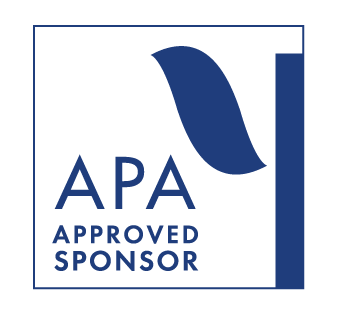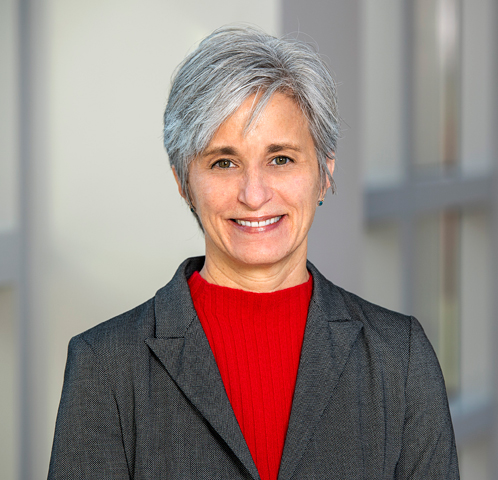Acute TBI Rehabilitation: Treatment Approaches Associated with Better Outcomes
 The International Neuropsychological Society is approved by the American Psychological Association to sponsor continuing education for psychologists. The International Neuropsychological Society maintains responsibility for this program and its content.
The International Neuropsychological Society is approved by the American Psychological Association to sponsor continuing education for psychologists. The International Neuropsychological Society maintains responsibility for this program and its content.Educational Objectives
- List and describe three acute rehabilitation treatment approaches identified through comparative effectiveness research associated with better outcomes.
- Describe advantages and challenges of the three approaches during acute recovery.
- Describe potential contributions of preserved brain-based mechanisms following TBI that may partially account for the positive association of specific approaches with better outcomes.
Course Information
| Target Audience: | Intermediate (requires understanding of or experience with interdisciplinary environment, regulatory limitations within the rehabilitation industry, and the role of psychologists on interdisciplinary teams) |
|---|---|
| Availability: | Date Available: 2021-08-13 |
| You may obtain CE for this webinar at any time. | |
| Offered for CE | Yes |
| Cost | Members $20 |
| Non-Members $30 | |
| Refund Policy | This webinar is not eligible for refunds |
| CE Credits | 1.0 |
Abstract
Comparative effectiveness research is identifying treatment approaches delivered during acute inpatient TBI rehabilitation associated with better outcomes at hospital discharge and across the first year following injury. This webinar will present evidence for treatment associated with better outcomes following TBI and the collaborative role neuropsychologists can play in assisting interdisciplinary rehabilitation teams to implement these treatments and promote better patient outcomes.
References
- Bogner, J., Dijkers, M., Hade, E. M., Beaulieu, C., Montgomery, E., Giuffrida, C., Timpson, M., Peng, J., Gilchrist, K., Lash, A., Hammond, F. M., Horn, S., & Corrigan, J. (2019). Contextualized treatment in traumatic brain injury inpatient rehabilitation: Effects on outcomes during the first year after discharge. Archives of Physical Medicine and Rehabilitation, 100(10), 1810-1817.
- Beaulieu, C. L., Peng, J., Hade, E. M., Montgomery, E., Gilchrist, K., Corrigan, J., Horn, S., & Bogner, J. (2021). Quasi-contextualized treatment in traumatic brain injury inpatient rehabilitation: Effects on outcomes during the first year after discharge. Journal of Head Trauma Rehabilitation. Advanced on-line publication ahead of print February 22, 2021. https://doi.org/10.1097/HTR.0000000000000649.
- Timpson, M., Hade E. M., Beaulieu, C., Horn, S. D., Hammond F. M., Peng J., Montgomery, E., Giuffrida, C., Gilchrist, K., Lash, A., Dijkers, M., Corrigan, J. D., & Bogner, J. (2019). Advanced therapy in traumatic brain injury inpatient rehabilitation: Effects on outcomes during the first year after discharge. Archives of Physical Medicine and Rehabilitation,100(10), 1818-1826.
- Beaulieu, C. L., Corrigan, J., Hade, E., Peng, J., Seel, R., Dijkers, M. P., Hammond, F. M., Horn, S. D., Timpson, M. L., Swan, M., & Bogner, J. (2019). Level of effort and 3 hour rule compliance. Archives of Physical Medicine and Rehabilitation, 100(10), 1827-1836.
- Beaulieu, C. L., Dijkers, M. P., Barrett, R. S., Horn, S. D., Giuffrida, C. G., Timpson, M.L., Carroll, D.M., Smout, R.J., & Hammond, F.M. (2015). Occupational, physical, and speech therapy treatment activities during inpatient rehabilitation for traumatic brain injury. Archives of Physical Medicine and Rehabilitation, 96(8), S222-S234.
Disclosures
None

 Cynthia L. Beaulieu, PhD is an Associate Professor, board-certified clinical neuropsychologist and clinical researcher in the Division of Rehabilitation Psychology, Department of Physical Medicine and Rehabilitation at The Ohio State University. She has practiced within the field of brain injury rehabilitation for over 30 years, in both the private and academic sectors. Currently, she services as the OSU site Principal Investigator for the TBI Model System Pain Collaborative Study and as Co-Investigator on several past and current TBI research projects. Her research projects have focused on identifying neurorehabilitation therapies associated with better outcomes for survivors of TBI.
Cynthia L. Beaulieu, PhD is an Associate Professor, board-certified clinical neuropsychologist and clinical researcher in the Division of Rehabilitation Psychology, Department of Physical Medicine and Rehabilitation at The Ohio State University. She has practiced within the field of brain injury rehabilitation for over 30 years, in both the private and academic sectors. Currently, she services as the OSU site Principal Investigator for the TBI Model System Pain Collaborative Study and as Co-Investigator on several past and current TBI research projects. Her research projects have focused on identifying neurorehabilitation therapies associated with better outcomes for survivors of TBI.